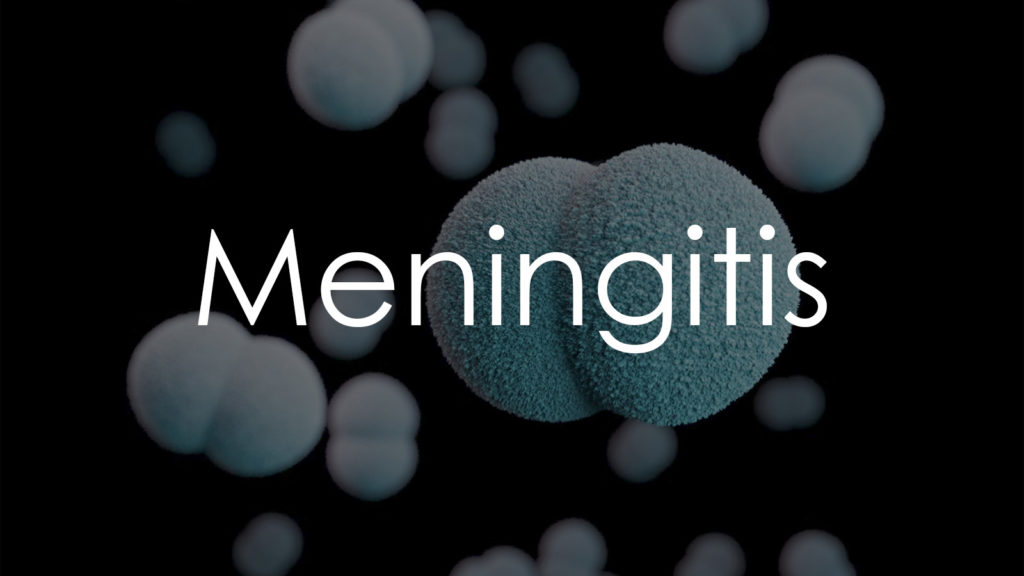Meningitis, a serious medical condition characterized by the inflammation of the protective membranes covering the brain and spinal cord, represents a significant health challenge. It can be caused by various infectious agents, including bacteria, viruses, and fungi, and affects individuals of all ages. The severity of meningitis can range from relatively mild cases in viral meningitis to life-threatening conditions in bacterial forms. This article aims to provide a comprehensive overview of meningitis, delving into its causes, symptoms, diagnostic procedures, treatment options, and preventive measures. Understanding meningitis is crucial for early detection and effective management, given its potential to cause rapid onset of severe symptoms and long-lasting effects.

Causes
Meningitis is an inflammation of the membranes (meninges) surrounding the brain and spinal cord, typically caused by an infection.
- Infectious Agents:
- Bacterial Meningitis: Often more severe; common causative bacteria include Neisseria meningitidis, Streptococcus pneumoniae, and Haemophilus influenzae. Bacterial meningitis is a medical emergency.
- Viral Meningitis: Generally milder; common viruses include enteroviruses, herpes simplex virus, HIV, and West Nile virus.
- Fungal Meningitis: Less common, it’s more likely to occur in people with weakened immune systems. Cryptococcus and Histoplasma are typical fungi causing meningitis.
- Modes of Transmission:
- Bacterial and viral meningitis can spread through respiratory droplets or throat secretions from an infected person.
- Close contact, such as living in the same household or dormitory, increases the risk of transmission.
- Fungal meningitis usually results from the inhalation of fungal spores.
- Risk Factors:
- Skipping vaccinations, age (young children and elderly are at higher risk), compromised immune systems, living in communal settings, and certain medical conditions can increase the risk of meningitis.
Symptoms
Meningitis symptoms can develop rapidly, often within hours or a few days.
- Common Symptoms:
- Sudden high fever.
- Severe headache that seems different than normal.
- Stiff neck.
- Nausea or vomiting.
- Confusion or difficulty concentrating.
- Sensitivity to light (photophobia).
- Symptoms in Infants:
- High fever.
- Constant crying.
- Excessive sleepiness or irritability.
- Poor feeding.
- A bulge in the soft spot on the top of a baby’s head (fontanel).
- Stiffness in the body and neck.
- Additional Symptoms in Viral Meningitis:
- Generally milder than bacterial meningitis.
- Symptoms may include fatigue, lethargy, and muscle aches.
- Severe and Complicated Cases:
- Can result in seizures, brain damage, hearing loss, and disability.
Early detection and treatment of meningitis are critical to prevent serious health complications and long-term effects. Anyone experiencing symptoms of meningitis should seek medical attention immediately.
Diagnosis
Accurate and timely diagnosis of meningitis is crucial for effective treatment and improving outcomes.
- Medical History and Physical Exam:
- Initially, doctors will review the patient’s medical history and perform a physical examination, focusing on signs like fever, neck stiffness, and neurological symptoms.
- Lumbar Puncture (Spinal Tap):
- The definitive test for meningitis. It involves collecting a sample of cerebrospinal fluid (CSF) from the spinal canal to analyze for signs of infection.
- Blood Tests:
- Blood cultures can identify the presence of bacteria or fungi in the bloodstream.
- Imaging Tests:
- CT scans or MRIs of the head can detect swelling or inflammation and rule out other conditions, such as brain abscesses or tumors.
- Other Tests:
- Depending on the suspected cause, additional tests like a throat swab or a PCR test for specific viruses may be performed.
Treatment
Treatment depends on the type of meningitis and its severity.
- Bacterial:
- Requires immediate hospitalization and treatment with intravenous antibiotics and corticosteroids to reduce inflammation.
- The choice of antibiotics depends on the suspected or identified bacteria.
- Viral:
- Generally less severe; most cases improve without specific treatment.
- Supportive care, such as rest, hydration, and pain relievers, is often sufficient.
- Antiviral medications might be used for certain types like herpes meningitis.
- Fungal:
- Treated with long-term antifungal medication.
- Supportive Care:
- Includes fluids to prevent dehydration, fever reducers, and seizure medications if necessary.
Prevention
Preventive measures can significantly reduce the risk of meningitis.
- Vaccination:
- Vaccines are available for some types of bacterial meningitis, such as Haemophilus influenzae type b (Hib), pneumococcal, and meningococcal vaccines.
- Good Hygiene Practices:
- Regular handwashing, covering the mouth and nose when coughing or sneezing, and not sharing eating utensils, toothbrushes, or drinks.
- Healthy Lifestyle:
- A strong immune system, supported by a balanced diet, regular exercise, and adequate sleep, can help resist infections.
- Avoiding Close Contact with Sick Individuals:
- Particularly with those showing symptoms of meningitis or other respiratory infections.
- Prophylactic Antibiotics:
- In some cases, close contacts of someone with bacterial meningitis may be advised to take antibiotics to prevent infection.
Implementing these diagnostic, treatment, and prevention strategies is key to managing meningitis and mitigating its potential complications.
Conclusion
In conclusion, meningitis remains a critical health concern due to its ability to rapidly progress and cause severe health complications, including permanent neurological damage. The key to managing meningitis effectively lies in rapid and accurate diagnosis, followed by prompt and appropriate treatment, which varies depending on the causative agent. Vaccinations play a vital role in preventing certain types of bacterial meningitis, highlighting the importance of immunization programs. Public awareness about the signs and symptoms of meningitis, along with good hygiene practices, can further aid in preventing its spread. The medical community’s ongoing research and advancements in treatment and prevention strategies continue to play a significant role in reducing the impact of meningitis globally.